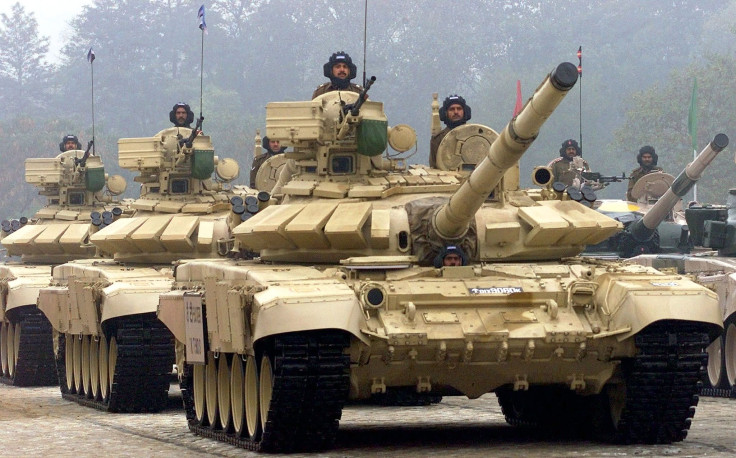Russia India T-90MS Tank Deal Negotiations For Moscow To Supply Military Battle Vehicle Have Begun

The Russian military began discussions with India Friday over a contract to supply the South Asia country with the T-90MS battle tank, according to a report from Russian news site Sputnik. Supplying the tank, which costs around $4.5 million per unit, would be the latest defense contract signed between the two countries over the last year.
"Negotiations are underway on the possibility of signing a new contract with new conditions, to supply India with T-90MS," said a representative of Uralvagonzavod, the manufacturer of the tank. However, the number of tanks that Russia would supply to India and their value have yet to be negotiated.
India currently has a license with Russia to reproduce a similar tank known as the T-90S. Both tanks use the same type of ammunition, but the T-90MS includes additional countermeasures to significantly reduce the chances of being hit by enemy anti-tank semi-automatic guided weapons.
The T-90MS, also referred as Tagil, was first unveiled in 2011. It was proposed specifically for the Russian army and possible export markets, including India. Russia has completed the full cycle of testing on the T-90MS, a spokesperson for the defense company manufacturing the tank told Sputnik Wednesday.
Last week, the Indian Defense Acquisition Council said it would add 48 Russian-built Mi-17-V5 helicopters to its military's fleet, Russia's official news agency Tass reported. That deal adds to the $6 billion contract that India signed earlier this year to buy BrahMos cruise missiles from Russia.
Despite sanctions resulting from Russia's involvement in the east Ukraine war, Russian defense sales topped $15 billion dollars in 2014, and the country's long term defense portfolio stands at about $48 billion, said Alexander Formin, director of the Federal Service for Military-Technological Cooperation, according to the Russian government owned Rossiyskaya Gazeta.
"We planned to deliver $15.59 billion worth of products but the actual cost of deliveries was $15.3 billion. Foreign currency revenue exceeded $14 billion," said Formin.
© Copyright IBTimes 2024. All rights reserved.






















